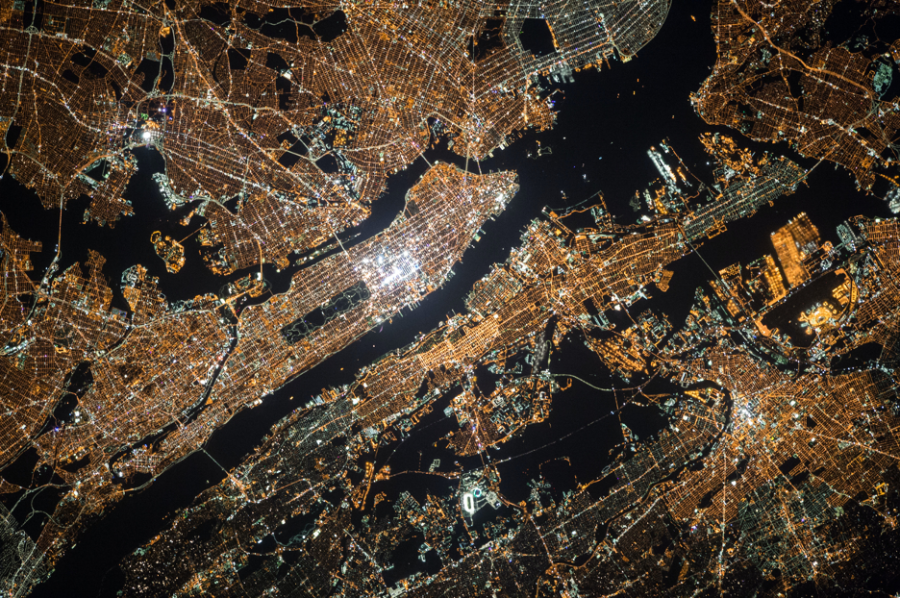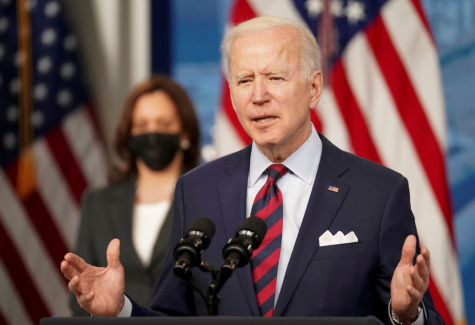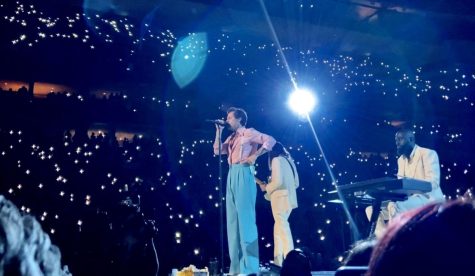Our Own Little Eden
Our Own Little Eden
June 11, 2020
Thinking about the time he walked on the moon, astronaut Edgar Mitchell from Apollo 14 remarked that, while seeing the earth from afar, he developed “an instant global consciousness, a people orientation, an intense dissatisfaction with the state of the world…You want to grab a politician by the scruff of the neck…and say, ‘Look at that!’”
It’s safe to say that during the last couple of decades, thanks to improvements in transportation and the invention of social media, people have developed a sense of a ‘global community.’ The plight of a starving family in Africa can trigger a rallying of support in the form of a GoFundMe page in America. The sight of protests in America can inspire British students to do the same in Trafalgar Square. Our sense of belonging and need for community — heightened by the loneliness of quarantine — shows that we work and live best when we sense that our community is secure and flourishing.
But it’s the opinion of many, including myself, that this shared sense of belonging is breaking, the ice beneath us is cracking, and the cold waters of uncertainty are beneath us. There are many angles from which one can view the disintegration of communities around us, much like a diamond reflects the same light in a thousand different ways, but I’d like to focus on two such reflections: our planet’s ecology and the formation of human virtue. The former concerns the natural world and our behavior toward it, and the latter concerns how we should behave as a society.
The care for and protection of the environment is not just a point of interest to our generation, but it is instinctual. It is an axiomatic proposition that every individual and community should do their best to take care of the resources they use and develop a consciousness of how they affect their environment. Different people carry different levels of this consciousness, but I haven’t found someone yet who would prefer the construction of an oil rig over the preservation of a coral reef. We strive to take care of nature (and shame those who don’t), but it is a point of fact that the resources we use are finite, and thousands of years of exploitation have left the world, well, looking quite exploited. There are so many forests we can use, so many miles of earth we can dig up for gold, so many tunas in the sea to make delicious sushi and much more. Two thousand years of human activity — actually, more like 200 years of industrial activity — have shaped the world such that we can see the difference from space. Even the most committed Anti-Malthusians can recognize that two thousand years more of increasing activity won’t just do damage to the earth; it will damage us as a species. However, it doesn’t take a Malthusian to resolve this problem, that is, population control and is not the only answer to allow the species to continue.
Just look up.
At our cosmological doorstep are the moon, Mars and massive bodies full of useful land. We now know that we can grow plants on Mars, and we can make the desert bloom. If we’re able to make the desert bloom, I can’t see why we can’t with Mars.
Let us expand out into our solar neighbors: Mars, Venus, Titan, Ceres. These will become names our great-grandchildren will know just as they learn about the Moon. Mars has the combined surface area of all of the earth’s continents and a mountain that’s the size of France. Venus’ thick atmosphere could harbor cloud cities akin to those in Star Wars. Titan has a complete water cycle (rain, rivers and oceans) but with liquid Methane; Ceres could be the Solar System’s next biggest cantina joint — a stopping place between Mars and Jupiter. A nearby asteroid, 16 Psyche, has enough gold and precious metals to make everyone on Earth a trillionaire. Such wealth would make Amazon CEO Jeff Bezos look like a beggar in comparison. The only limitations to accessing this wealth are human ingenuity and capital allocation. The universe, therefore, can become as exploited as human vice desires it to be, whilst the earth, our Eden, can become a garden world, a beautiful reminder of the cosmological crib which we came from. Feel free to drop a nuclear bomb on the next asteroid you find, but don’t cut down a forest on Earth.
But there’s a deeper benefit to the exploration of the universe than mere resources, for man does not live from bread alone. My last point to make is probably more controversial, but I’m confident that the lessons of history confirm it. I believe that the exploration and colonization of the unknown will breed a society that is stronger, more ingenious and more virtuous than that of our present, decadent age. Rome reached its glory when it defeated Hannibal and the Carthaginian Empire. Europe burst into a renaissance of art and science after history’s most fatal pandemic. America’s status as a superpower rose from the ruins of Pearl Harbor and into the Space Age. Faced with a mortal enemy, a hero rises up to defeat the great dragon. If we are to expand to space, the stakes could not be higher: a thin film is enough to separate our intrepid explorers from the vacuum of space. Great stars, black holes, gamma ray bursts, extreme temperatures and all kinds of hostile environments for human life stand in our way. It is up to the genius of all people, and their will to find a way to survive, to forge the virtues, create incredible acts of heroism and ultimately, drive the destiny of humankind. The peace and stability of earth is the universal anomaly, not the other way around.
The expansion to space is not a far-off dream. SpaceX and a thriving start-up space scene are making it easier than ever to get started on this promising industry. For now, it is the will of individuals that are deciding the course of our road to space, not governments. However, I can’t help but think of the possibilities if our government would organize around this goal. If the government is made of the people, then I believe that we can find a way to move the culture towards this goal. This might be the final solution to our problem of global warming, the destruction of Earth’s ecology and the dwindling size of our natural resources. It might just make better citizens, too.












